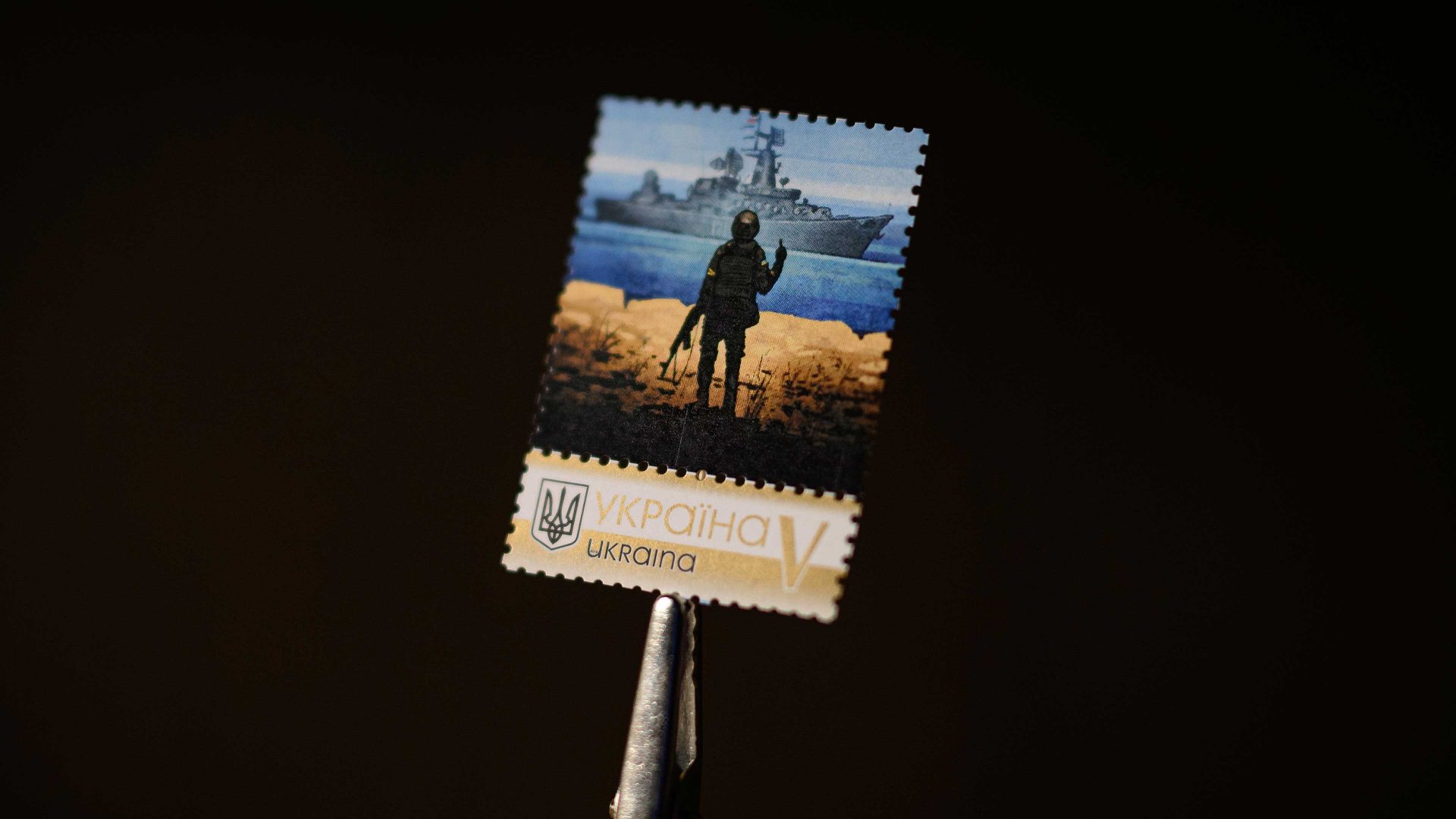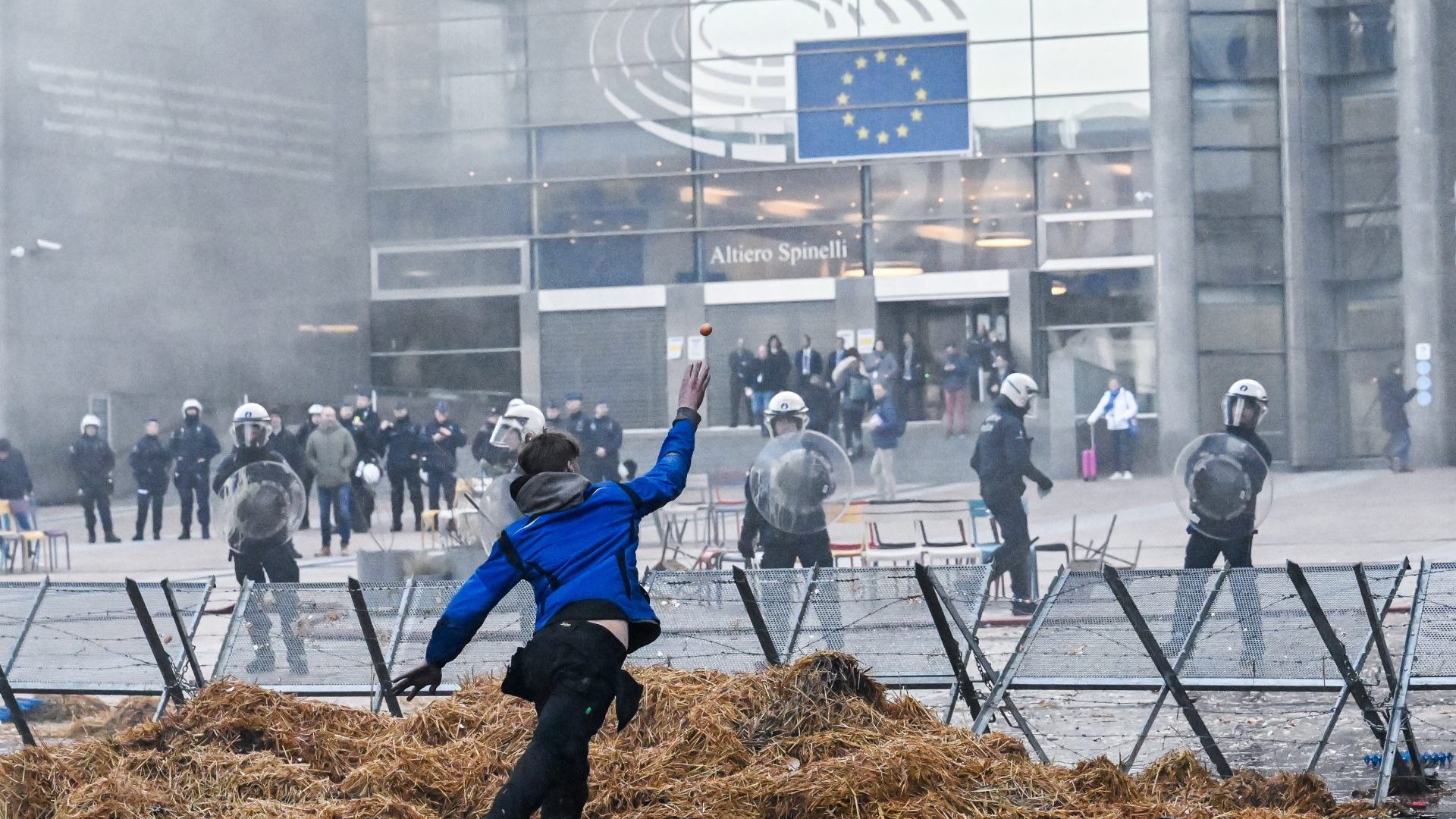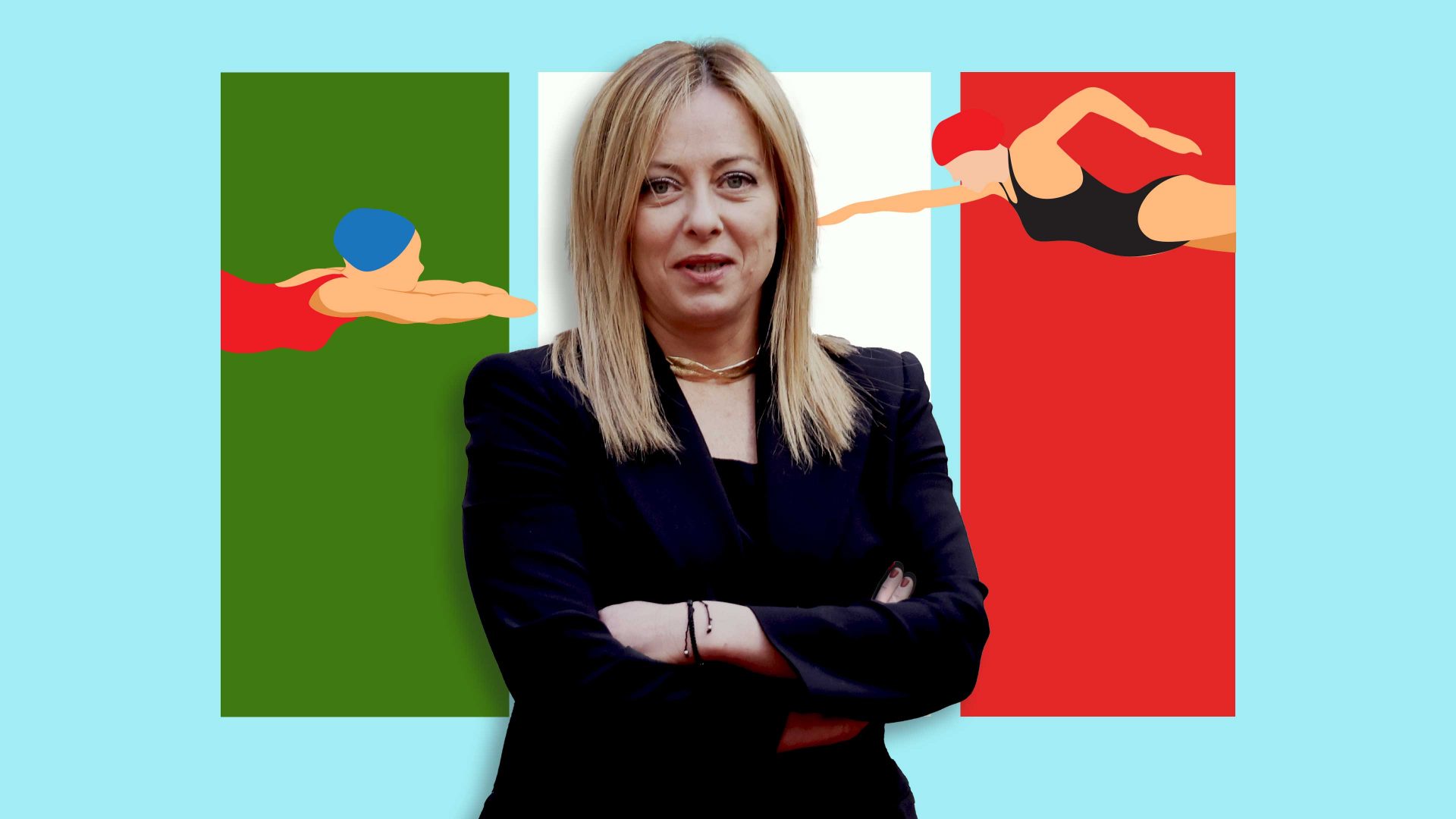“He’s 59.” The Ukrainian student was answering my question about his father’s age. I had asked because he had just told me his father had joined the Ukrainian army. If he had a son of university age, I reasoned, he was likely to be at least 40, and therefore older than most men who go to war. He was much older, but Vladimir Putin’s invaders have no respect for age.
The student, whom I will call Volodymyr, is taking a course at the university where I teach. I had arranged for his admission after his prospects for higher education were wrecked by war. He had asked to see me because he wished to show me something from Ukraine. It was, he said, a gift from his father.
He presented me with a small photo frame that contained three items: two military patches, one of them the Ukrainian flag, and a postage stamp. The stamp showed a picture of a Ukrainian soldier defying orders from a Russian warship to surrender the strategically important Snake Island in the early days of the war. His back to the onlooker, the soldier gives the finger with his right hand. He holds his rifle in his left. The words the island’s Ukrainian defenders are supposed to have used on this occasion are usually given as, “Russian warship, go fuck yourself”. The Russian phrase is actually even more colourful. One advantage of being at war with a neighbour whose language most of your army speaks, or at least understands, is that you can insult your enemy so effectively.
In the case of Volodymyr’s father, especially so. I asked whether his father had previously served in the army. Yes, he had – in Soviet times. Then the language of command, and very possibly many of the officers, would have been Russian, a distinction that mattered little when they were all fulfilling their duty to defend the Soviet Union. He can never have imagined then that the first war in which he would serve would be against an invading army sent from Moscow.
And if, approaching 60, he seems old for war, remember that men aged between 18 and 60 are generally not permitted to leave Ukraine lest they be required for military service. A recent conversation with a contact in Kyiv suggested that the main domestic political issue preoccupying Ukrainian society at the moment is how long soldiers should serve, and whether there should be a greater mobilisation. Currently, men can only be called up for combat after they turn 27, though they can volunteer from 18.
The Ukrainian authorities do not keep records of, or at least do not publish, the average age of their soldiers: but recent media reports put it at 43. The heartbreaking truth is that many are joining up in middle age in the hope of saving their sons and daughters from having to fight in the future.
I thought of these ageing recruits when reading the recent warnings from Nato and other officials that we may be in a pre-war era, and Sir Patrick Sanders’ recent suggestion that the UK should train a “citizen army”. I am not as old as Volodymyr’s father, but I am of an age that I suspect would rule me out of signing up. But if you are expecting a comfortable middle-aged armchair warrior’s howl of regret that I might be too old, look elsewhere.
For I see the photo frame, containing the military patches and the Ukrainian stamp and I recognise the sacrifice it symbolises, with great gratitude. I have never been a soldier, but as a journalist I have witnessed wars in Gaza, Iraq, Georgia, and Chechnya: the latter two arguably part of longer-term preparation for the Kremlin’s invasion of Ukraine. I am thankful that I was born in western Europe in the second half, rather than the first half, of the last century. My childhood and teens were overshadowed by the cold war, but my adult life has been lived in an age largely of peace and cooperation. I have seen enough as a correspondent covering war to know that all of Europe owes Ukraine’s middle-aged army a debt of gratitude. Their fate will shape the future of European security.
James Rodgers is an author and journalist. His latest book, Assignment Moscow, is published by Bloomsbury



